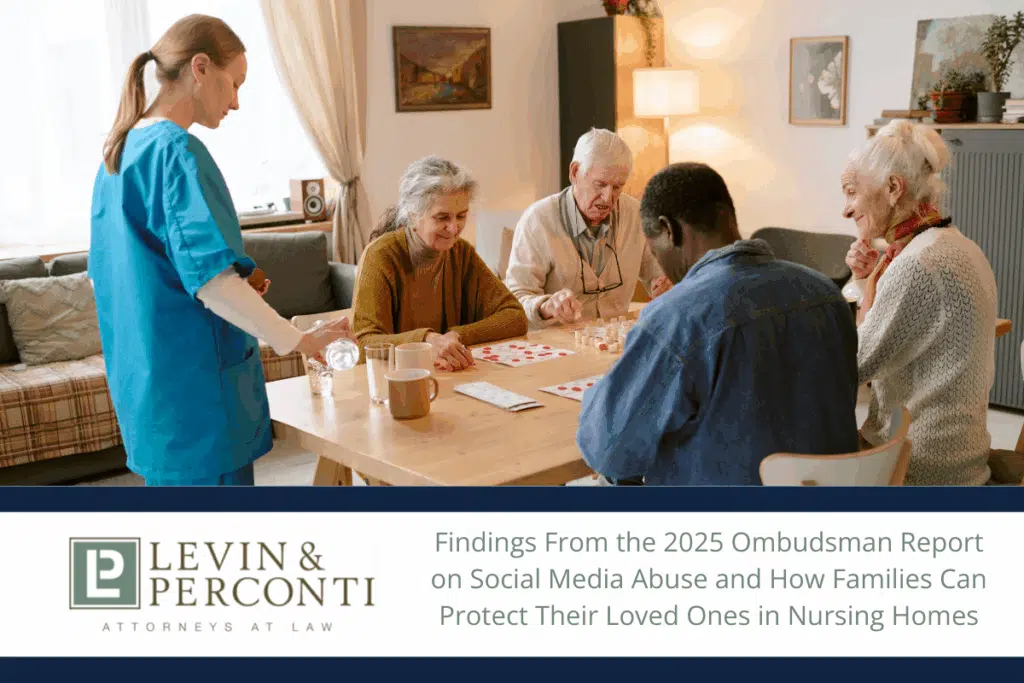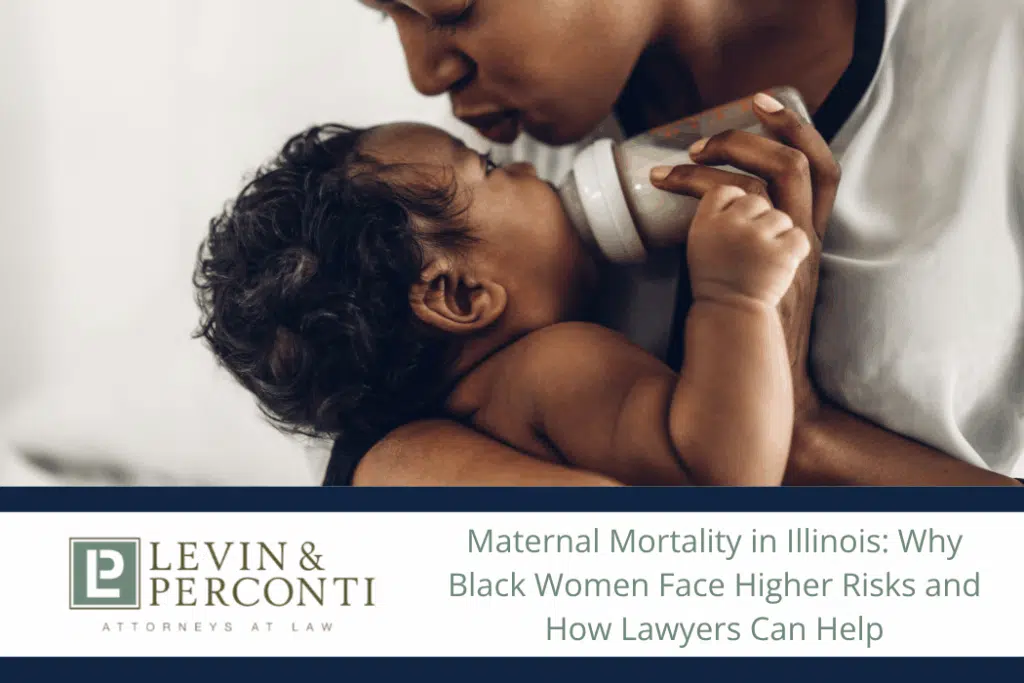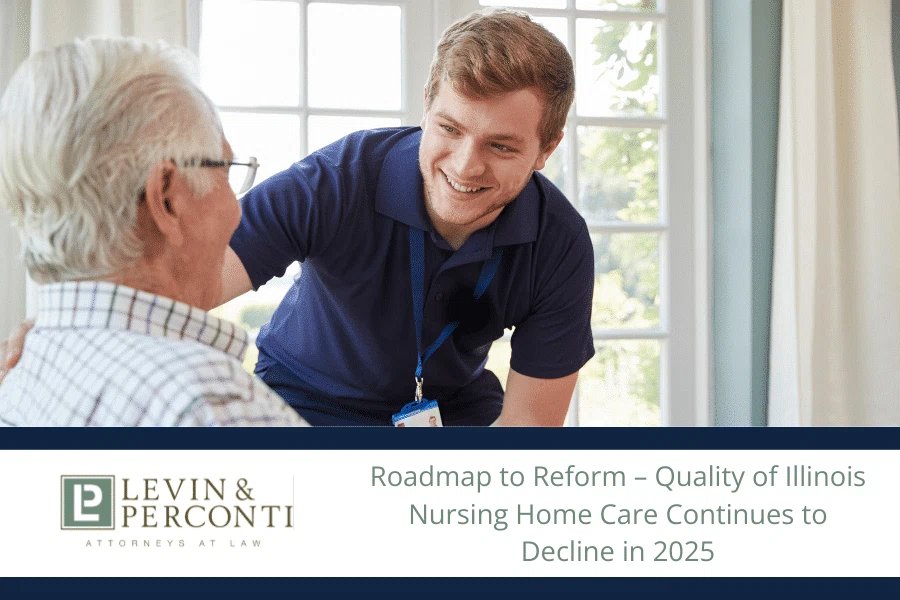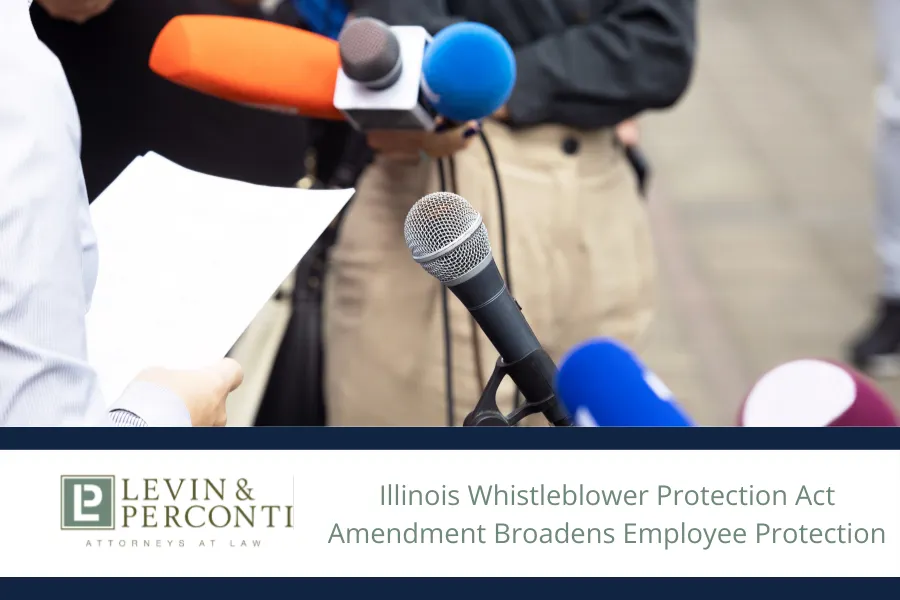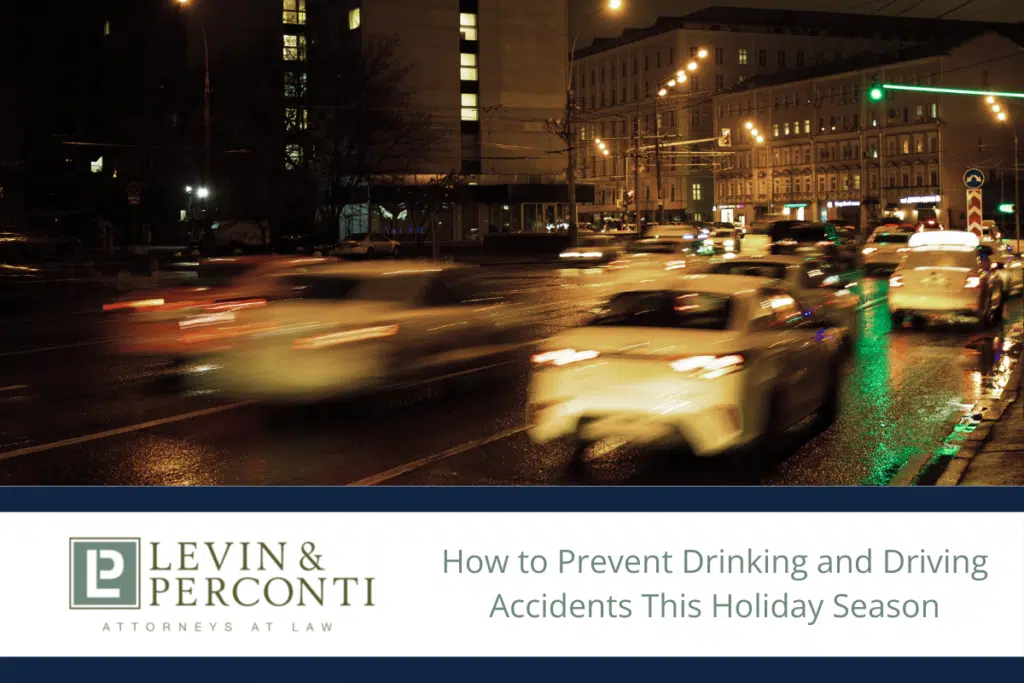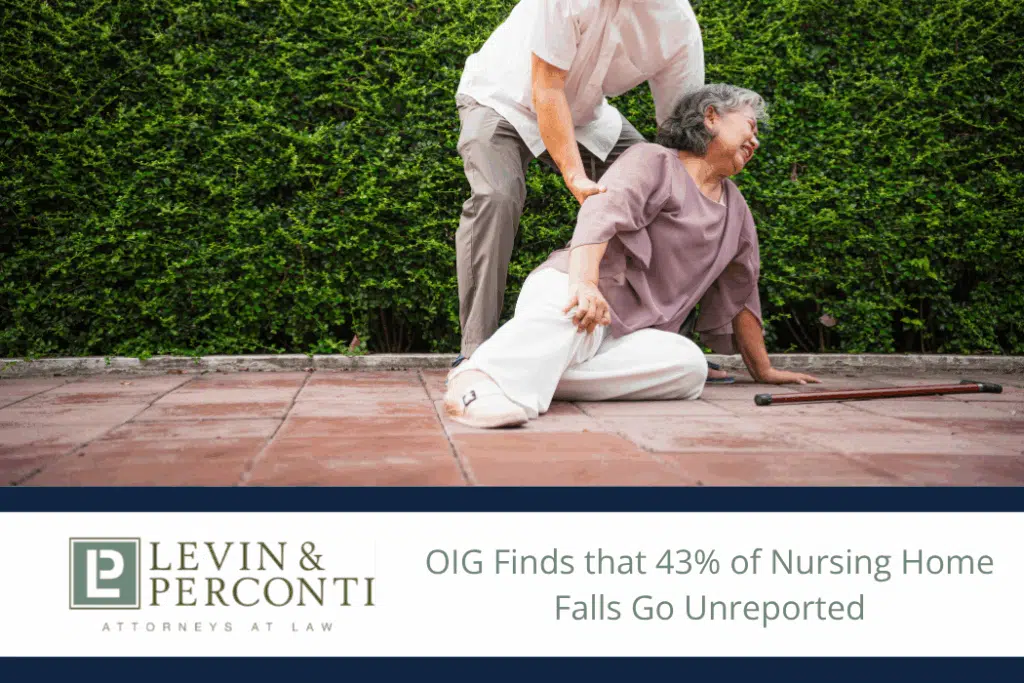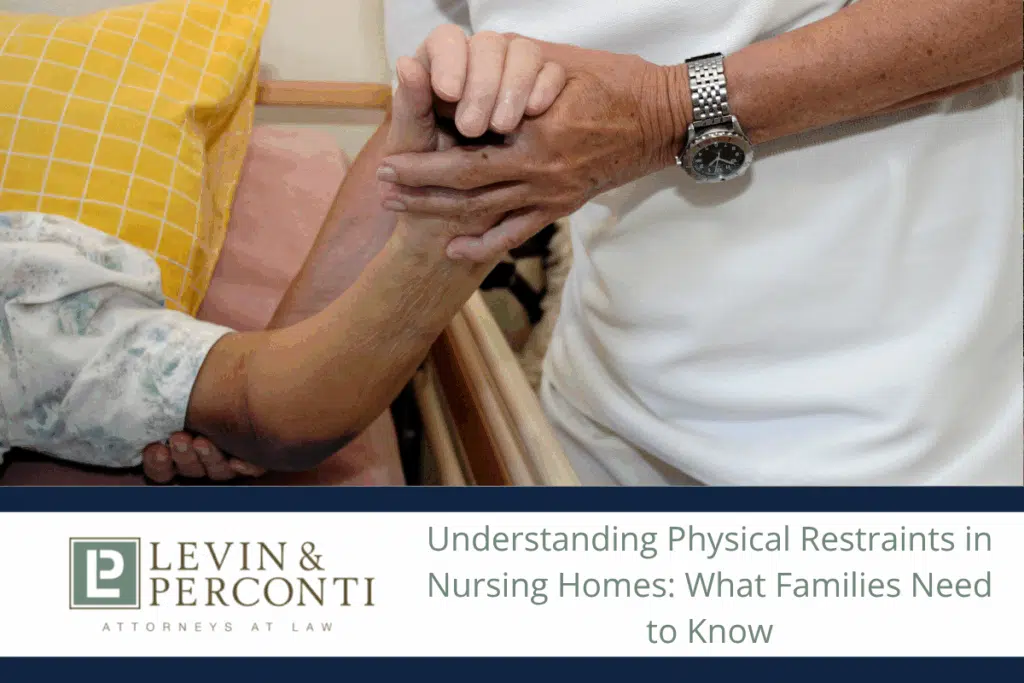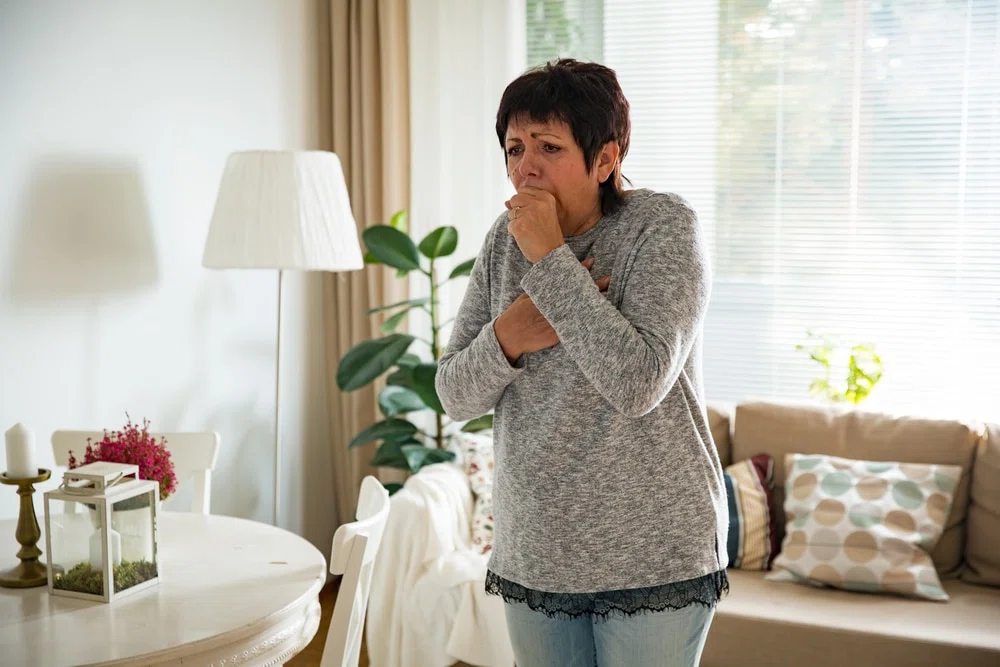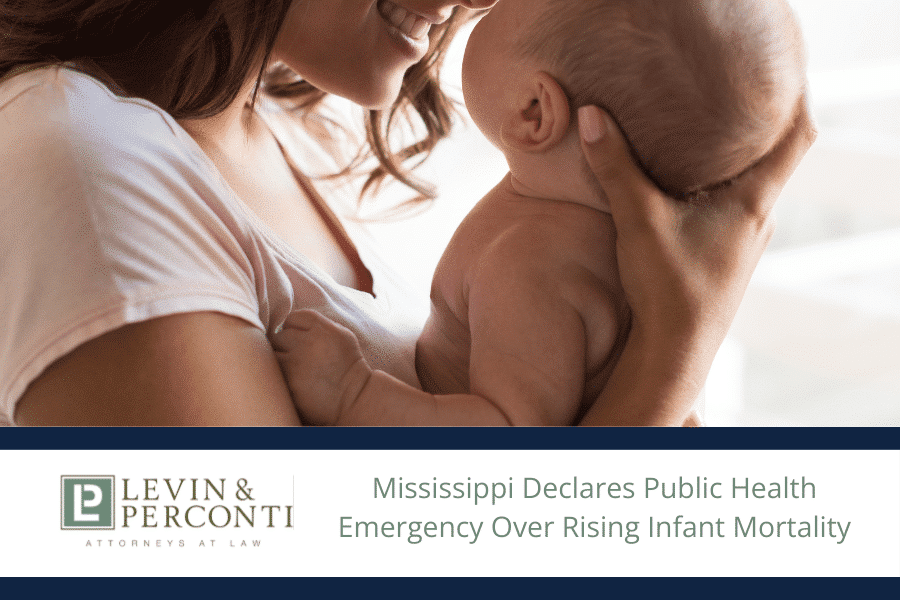Nursing Home Wandering & Elopement

Elopement can happen when a resident is allowed to wander without safety protocols or interventions in place to protect them.
Nursing home staff are responsible for supervising and adequately caring for all residents. They are tasked with identifying elopement risks and implementing strategies to mitigate those risks. Therefore, if a resident elopes, it’s likely that negligence or neglect on the part of the nursing home and its staff members was a contributing factor.
Home | Nursing Home Abuse & Neglect | Nursing Home Wandering & Elopement
Quick Links
- What’s the difference between elopement and wandering?
- What happens when a resident at a nursing home elopes?
- Dangers of Elopement
- Why do nursing home residents wander or elope?
- Is elopement in nursing homes preventable?
- Nursing Home Elopement Reporting
- Can I sue a nursing home if my loved one elopes?
- Why should I hire the nursing home abuse and neglect lawyers at Levin & Perconti to handle my elopement case?
If your loved one was subject to an elopement incident that caused injury or death, contact the nursing home abuse and neglect attorneys at Levin & Perconti to learn more about your rights and whether you and your family are entitled to compensation for any resulting losses.
What’s the difference between elopement and wandering?
Elopement is a particularly dangerous form of wandering where the individual leaves an area of safety and doesn’t return. In a nursing home, wandering might mean leaving a safe area within the facility to access another room or a closed-off or restricted location within the grounds of the establishment.
Generally, elopement describes the act of a resident leaving the premises altogether, thereby making them vulnerable to various external hazards they’re otherwise not exposed to within the nursing home environment and putting their overall well-being at risk.
What happens when a resident at a nursing home elopes?
Nursing homes and long-term residential care facilities should have missing person protocols in place if a resident elopes. Generally, an internal alarm system or alert signal will notify staff to begin response procedures to search for the missing resident.
Staff will search throughout the nursing home grounds, even in areas that are typically off-limits, accessing high-hazard areas first, such as the parking lot, rooftop access, stairwells, adjacent roadways, and any nearby bodies of water.
Additionally, the nursing home is required to immediately inform the following individuals and authorities about the incident:
- Management
- Family members
- Doctors tasked with the resident’s medical treatment
- Law enforcement
After reporting to the local police, if the person is 60 or older and suffers from dementia or other mental impairment, law enforcement will verify details of the missing person and report the data to the state agency in charge of the Silver Alert System, where applicable.
The Silver Alert System is modeled after the Amber Alert System for missing children. A statewide alert is issued to notify all citizens that an elderly person is missing. This alert can reach people’s cell phones, be broadcast on television and radio programs, and be displayed on electronic highway signs so that everyone can be on the lookout and help to safely return the resident.
Dangers of Elopement
A study published in the American Journal of Alzheimer’s Disease and Other Dementias stated that “An estimated 60 percent of community-dwelling individuals with [Alzheimer’s disease] will wander away at least once.”
Some elopers are found safe and alive, while many are found injured or dead. Still, others are never located. The journal publication indicated that 70% of at-risk residents who wander away from long-term residential care facilities do not survive the incident.
Researchers have found that a resident’s risk of severe harm increases significantly if not found within 24 hours, with up to half of those who are missing for more than one day suffering serious injuries or death.
Dangers that residents might be faced with if they elope include:
- Becoming disoriented
- Getting lost
- Exposing themselves to the elements (i.e., snow, sleet, ice, wind, heat, rain, etc.)
- Falling
- Drowning in bodies of water (e.g., lakes, rivers, ponds, or oceans)
- Walking onto busy roadways
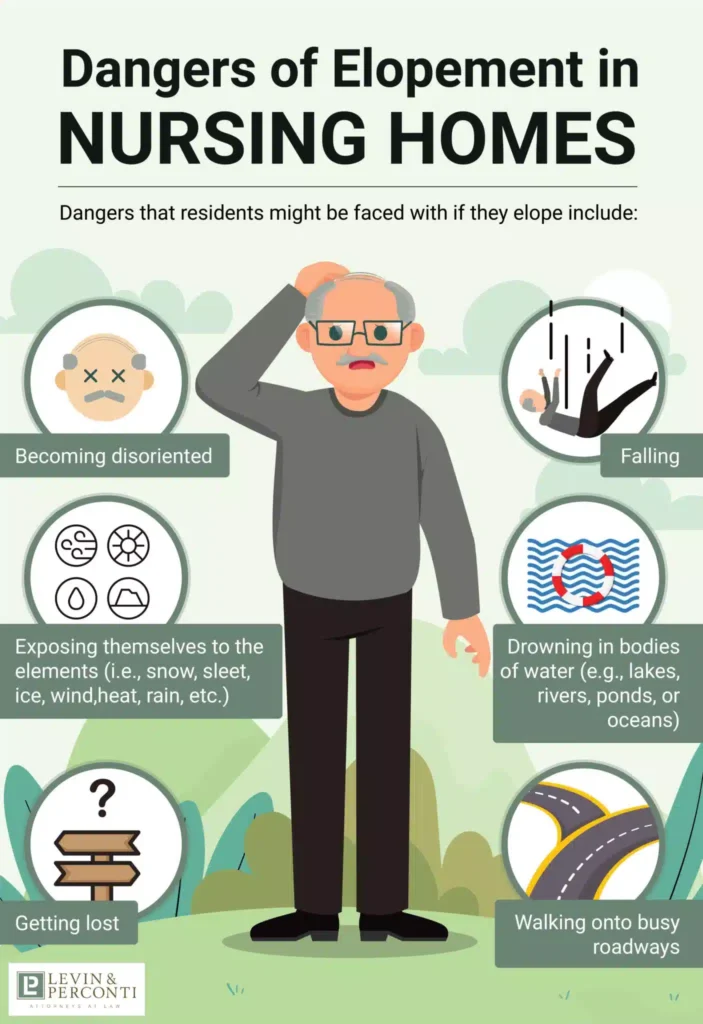
Why do nursing home residents wander or elope?
Most nursing home residents who are prone to wandering or eloping suffer from some type of cognitive impairment, such as dementia. Nearly half (45%) of elopements occur within the first 48 hours after a new resident is admitted. Additionally, a history of wandering is a good predictor of future wandering, with 80% of elopement incidents involving chronic wanderers.
Residents who wander or elope might be confused or feel unsafe, causing them to leave their area of confinement. Their need to wander or walk persistently and aimlessly might be stressful for the patient and caregivers, but it’s not without a purpose to the wanderer. In their mind, they are hoping to fulfill a perceived goal.
Rather than try to control the behavior that has some benefits to the wandering individual when managed appropriately, it’s important for nursing home staff members to have plans and strategies in place to mitigate risks to the resident while also nurturing their innate desire to walk, explore, or have their needs met.
Is elopement in nursing homes preventable?
Nursing home staff is tasked with the responsibility of ensuring the safety and well-being of all residents. This duty includes establishing and implementing specific precautions to prevent elopement, especially among residents at risk of wandering.
When your loved one is admitted to a nursing home, staff should create a care plan, taking into account the unique needs of the new resident. It’s important to involve the resident, family members, caregivers, and professionals in the development of the care plan to ensure its effectiveness in providing adequate interventions.
All residents with cognitive impairments who are able to independently move about and wander should be considered at risk for eloping, even if no prior elopement history exists, according to experts.
Earlier tactics used to prevent wandering and elopement included physical restraints and medications. But these strategies proved to yield harmful side effects and negative consequences for the patients. Today, nursing homes can use both technology and other interventional methods to keep residents safe from elopement concerns while allowing them to maintain some independence to support their overall physical and social functioning. Some ways nursing homes might choose to mitigate elopement risks include:
- Using locating strategies, such as GPS, Bluetooth, radio frequency, and Wi-Fi
- Installing alarms and sensors, such as motion sensors, monitors, and optical systems
- Utilizing distraction and redirection strategies, such as music therapy, animal therapy, visual barriers on exit doors (e.g., cloth, door murals, and mirrors), or arranging crafts or other activities to keep residents occupied
- Organizing exercise groups to normalize walking
- Having ways to identify residents for a safe return if they wander (e.g., ID cards and labels or Safe Return and Medic Alert)
- Installing door locks
Nursing Home Elopement Reporting
If you suspect that your loved one was subject to abuse or neglect at a nursing home, resulting in their elopement from the facility, it’s important that you report the matter to the appropriate authorities so that they can start an investigation. You can contact the following agencies for assistance:
- Adult Protective Services (APS) in your state
- Nursing home ombudsman in your state
- Local authorities
- Eldercare Locator
- National Center on Elder Abuse
- Doctors and medical professionals
- Nursing home abuse attorney
Can I sue a nursing home if my loved one elopes?
If your loved one elopes from a nursing home, it’s likely that negligence or neglect occurred, leading to the hazardous predicament for the resident. Nursing home staff members are expected to be vigilant to protect residents who might be prone to wandering or eloping. Additionally, the nursing home should have various safeguards in place to prevent elopement.
Also, depending on the nursing home’s response to the incident, delays in reporting or a lack of protocols to bring your loved one back quickly and safely could put the resident at an increased risk of serious harm. In this instance, you could speak with a knowledgeable nursing home litigation attorney who can evaluate the specific facts of your case and determine if you’re eligible for compensation for any related damages.
Damages or losses can vary with each case. When a nursing home fails to provide adequate care and supervision for your senior family member and they elope, resulting in injury or death, the nursing home should be held accountable for its actions. You might be entitled to compensation on behalf of your loved one in the form of economic and non-economic damages.
These damages include:
- Past and future medical bills
- Ambulance expenses
- Emergency surgery costs
- Medical equipment costs
- Physical therapy or rehabilitation expenses
- Alternative care costs
- Pain and suffering
- Mental anguish
- Disability or disfigurement
- Loss of enjoyment of life
- Wrongful death
If the nursing home’s actions were intentional, reckless, or careless, you may be eligible to receive punitive damages. These damages are awarded to punish the wrong party and make an example to discourage future similar wrongdoing by the defendant and others.
Why should I hire the nursing home abuse and neglect lawyers at Levin & Perconti to handle my elopement case?
The nationally recognized attorneys at Levin & Perconti are well-versed in nursing home litigation. The firm’s founding partners are widely recognized as pioneers in this area of law, having been some of the first attorneys in the U.S. to prosecute nursing home and abuse cases on behalf of older adults and their families. Since 1992, our attorneys have recovered over $1 billion in verdicts and settlements for our clients. We have the knowledge, respect, expertise, and financial resources to pursue maximum compensation on behalf of you and your loved one.
Some of our more notable cases include:
- $4.1M record-breaking jury verdict on behalf of an 85-year-old woman who was injured in a nursing home after staff mismanaged her medications
- $2.9M record nursing home jury verdict for the family of a deceased 57-year-old resident who suffocated due to staff’s negligent care of her tracheostomy tube
- $2.8M record nursing home settlement for a 59-year-old resident who developed multiple painful and infected bedsores that took four years to heal
- $2.7M jury verdict for the estate of a 67-year-old man who died from complications related to a fall at a Chicago-area nursing home
Contact Levin & Perconti today for a free case evaluation.
Testimonials



Legally Reviewed by

Read Bio
Since 1976, Steve Levin has been dedicated to helping people injured by others’ negligence. He is one of the first attorneys in the U.S. to prosecute nursing homes for abuse and negligence. He’s also helped write new legislation that governs the operation of nursing homes, including the Illinois Nursing Home Care Act. Moreover, Levin & Perconti has obtained the top three jury verdicts in nursing home negligence cases in Illinois.
Related Pages
Notable Results
Related Blogs
